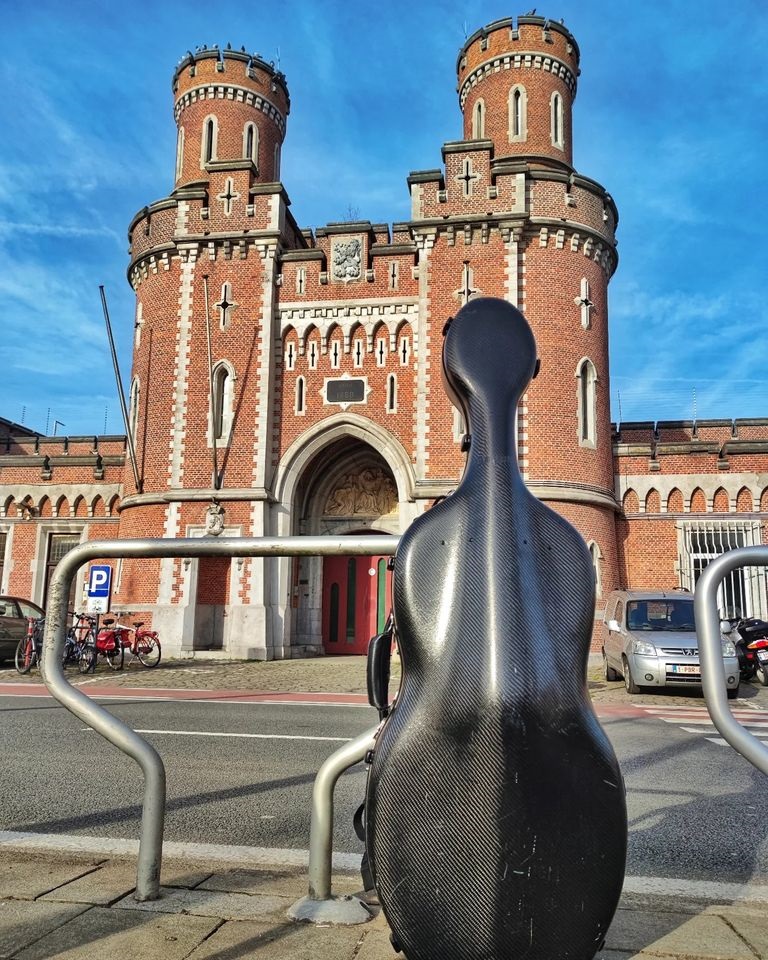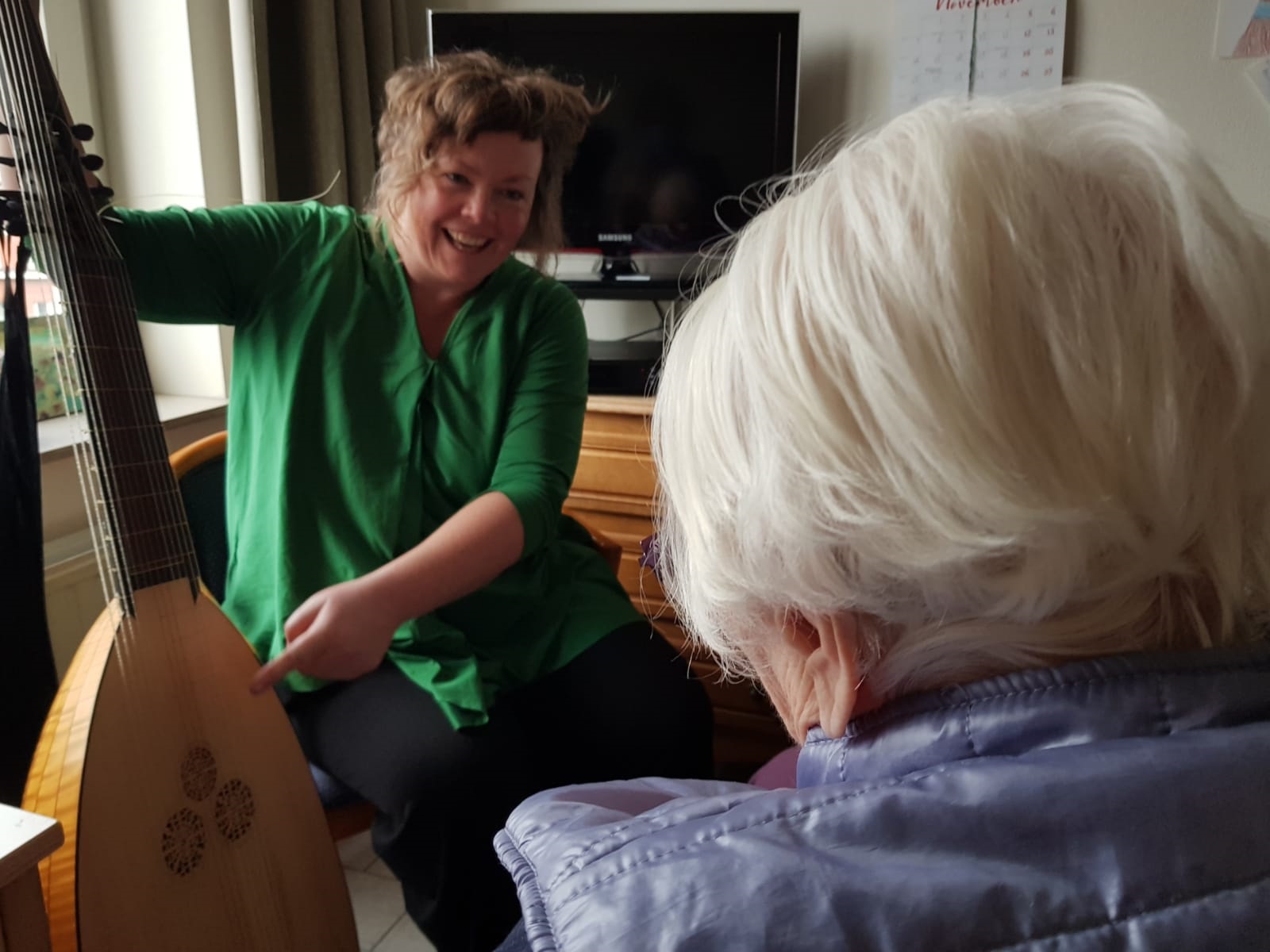The weather this past winter was, well, bleak. That could be one of the reasons why the musicians behind Sounds for the Soul have been so busy lately. Though they know that the reasons behind requests for their work are more complicated than celestial forces.
People call on Sounds for the Soul when they are feeling low. Whatever the reason – divorce, loneliness, illness, burnout – nothing is out of bounds. You tell them what you are going through, and a musician comes to your home, engages you in conversation and then plays something – generally a classical musical piece – individually chosen for you.
A project set up alternative classical music centre Das Haus in Brussels, Sounds for the Soul is a simple concept. But it has a profound effect, according to Sergio Roberto Gratteri, who founded them both. “I have launched several social projects, often linked to a certain need in society,” he says. “This time I wanted to create something that was directed towards everyone because it’s not just about poor people, say, or young people – everyone has a difficult time sometimes.”
Gratteri has a degree in musicology and spent several years at Bozar working on programming and audience engagement. He is the founder of the beloved Singing Brussels (now called Let’s Zing) and Homelands, which brings refugee musicians together with cultural institutions. He’s from Limburg but has long lived in Brussels and Sounds for the Soul generally serves people living in the capital – though musicians have occasionally ventured beyond the borders.
“I have seen throughout my career the effect that arts can have on people,” he says. “On their development and their mental wellbeing.”
Enter Sounds for the Soul, an extremely intimate, one-on-one experience. “The musician goes directly to the person’s home and listens to what the person has to share.”
Then the musician plays a piece inspired by this conversation. “They know beforehand what the issue is and often have an idea what they are going to play, but it does happen that when they are actually there and listening, they change the performance,” he says.
Listen and play
Sofie Vanden Eynde, who plays lute and theorbo (a large bass lute), can confirm that. She has performed for upwards of 25 people and sometimes ends up changing her mind about the piece. “So I always have both instruments with me,” she says, “and then I decide on the spot which one I will play.”
There are 11 musicians and singers working with Sounds for the Soul. The singers only sing, and the musicians only play – whether it’s a violin, lute, clarinet or another instrument. Vanden Eynde says that some of the people she visits feel terminally ill, and some are just overwhelmed by responsibilities. But much of the time it comes down to loneliness. “I have been to see people who almost never have visitors,” she says. “Some of them have literally only one chair.”

Sergio Roberto Gratteri
This makes the conversation especially important. “It’s just two people – me and the person in front of my telling their story. I have often had the feeling that it was one of the only times that someone was really listening to them and asking questions related to their stories. I have found this very surprising and sometimes very touching,” she says.
Musicians as therapists
This brings up an obvious question: are these musicians equipped to deal with this? “We train them in empathic listening and in connective communications,” explains Gratteri. “And we hold group sessions with a psychologist. How do you set limits, what do you do if you yourself feel moved. One time someone was listening to a person talk about how his sister had committed suicide. The musician’s sister had also committed suicide. But they have to listen and perform and stay professional.”
Following the session, the musician writes down what they played and also offers suggestions for what else the person could listen to in the coming days and weeks. This gives them “a lingering experience,” Gratteri explains.
Sounds for the Soul is a free service, though donations are gladly accepted. It also has contracts with certain institutions, such as nursing homes or homeless shelters, to provide the service to residents or others who might benefit from it.
One ‘customer’, Lies, received a Sounds for the Soul session as a gift. She lived in Forest at the time, and a cellist came round to play something for her and her sister. Normally sessions are for individuals only, but an exception was made as she and her sister were going through the same thing – they had lost their mother to cancer.
“He was very nice, open to listening and made us feel at ease,” she says. “People often ask ‘how are you?’, but usually you just answer in the way people expect you to, or you don’t really have time to answer completely. Here we could, there was time. It was quite simple but very honest.”
The musician played a cello suite by Bach. “We felt that he was responding towards us with the music,” Lies says. “There’s really power in music. You don’t always need words to deliver a message.”

